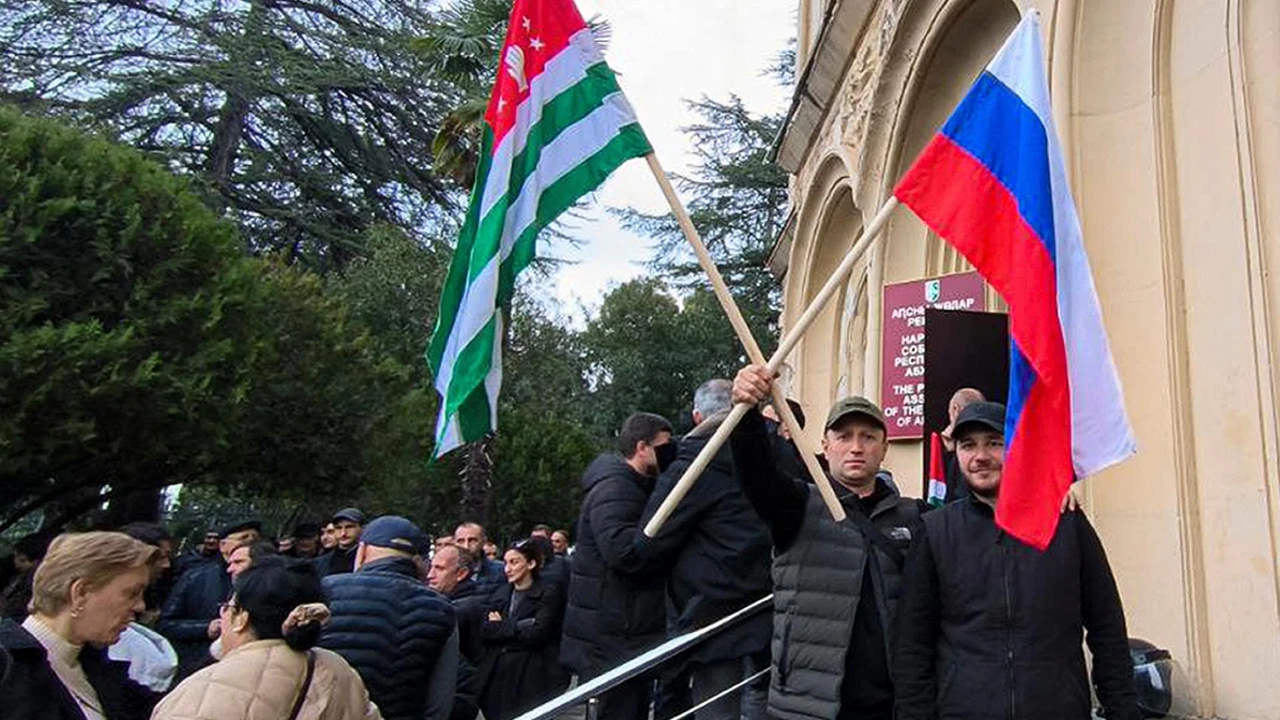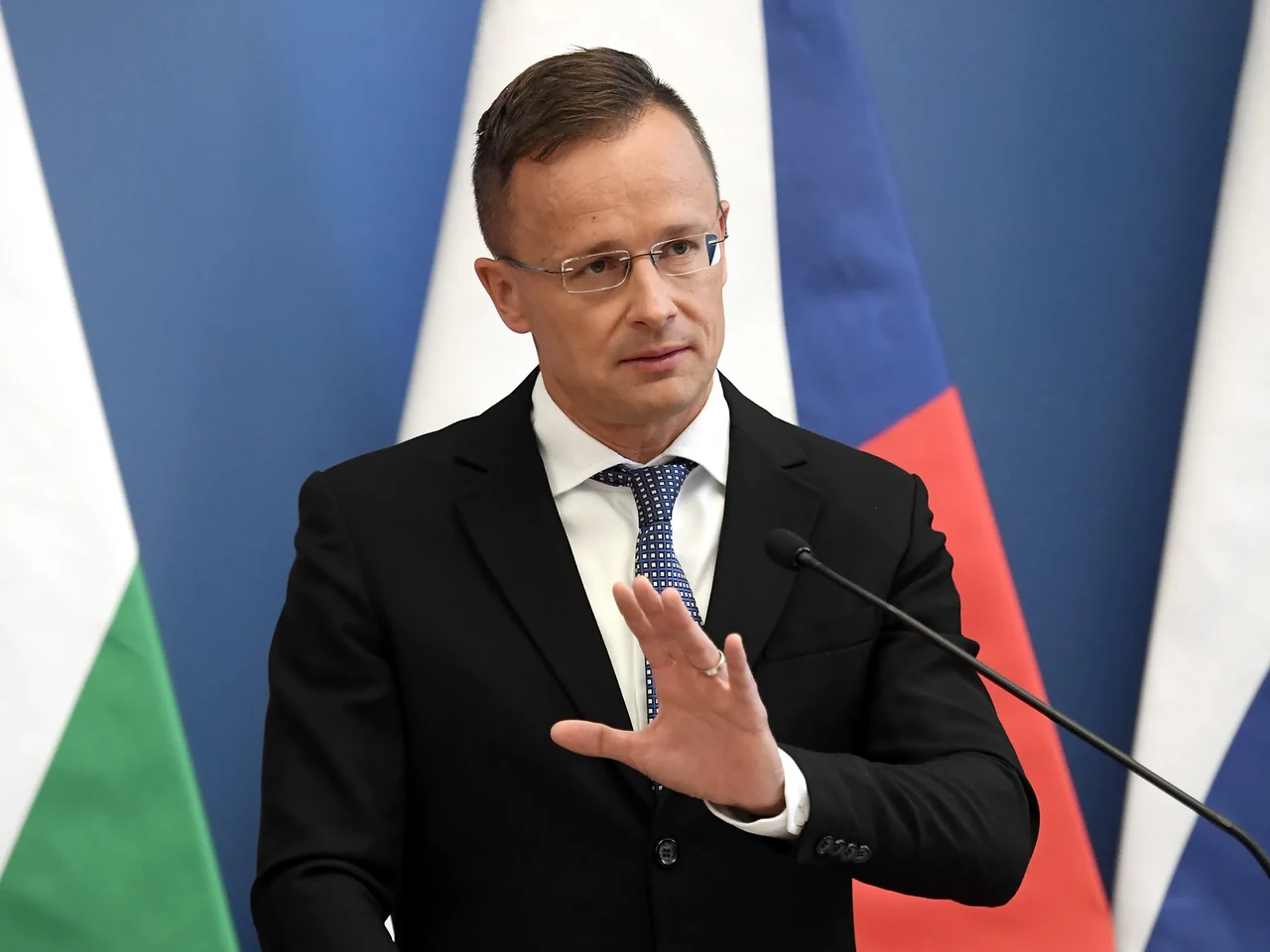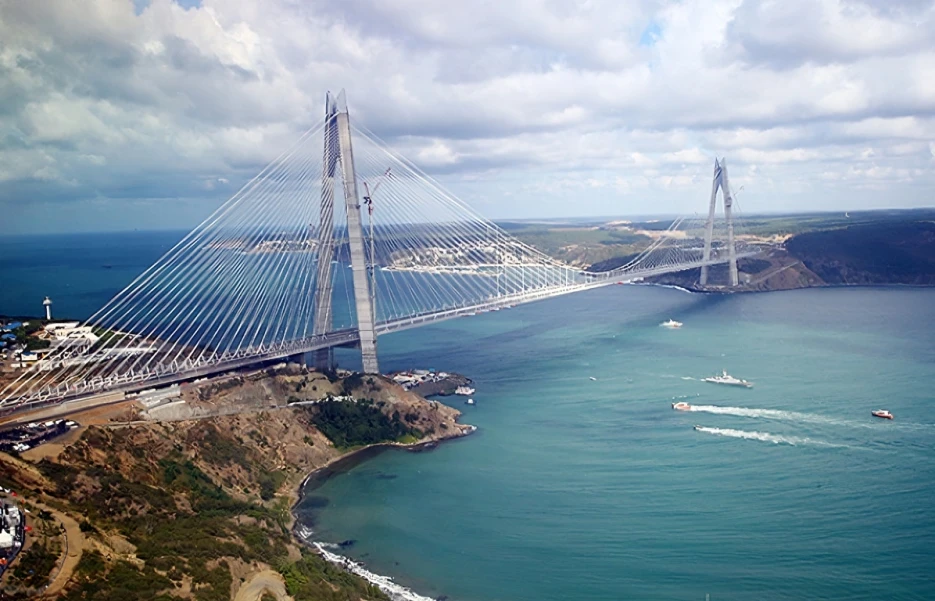Historic security failure: Iran arrests senior officials to find Hamas leader’s assassin
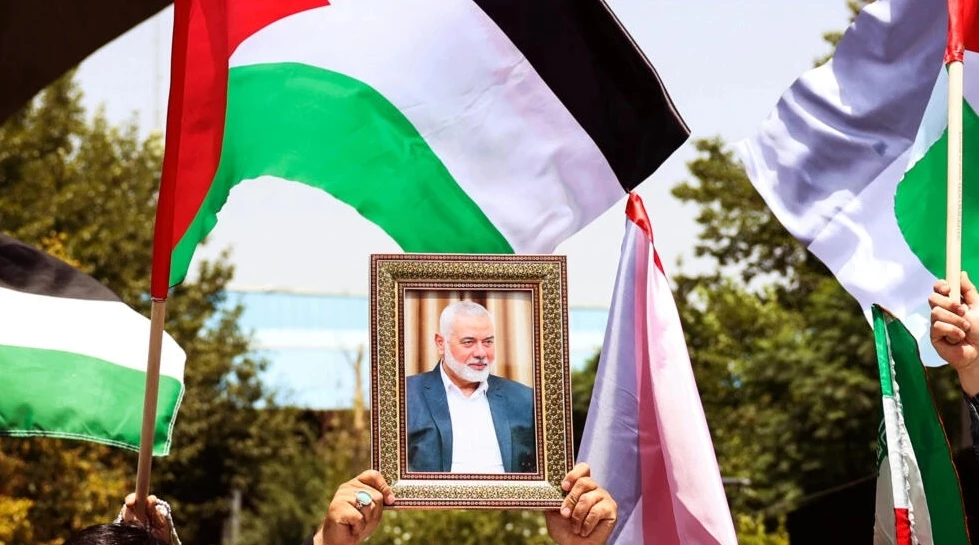 People hold up the Palestinian flag and a portrait of assassinated Hamas leader Ismail Haniyeh during a rally at Tehran University, Iran, July 31, 2024. (AFP Photo)
People hold up the Palestinian flag and a portrait of assassinated Hamas leader Ismail Haniyeh during a rally at Tehran University, Iran, July 31, 2024. (AFP Photo)
The assassination of Hamas leader Ismail Haniyeh in Tehran is a severe blow to Iran’s security apparatus, shaking the foundations of its leadership and prompting swift and far-reaching actions.
The fallout
Arrests, investigations:
- According to the New York Times, over two dozen people, including senior intelligence officers, military officials, and staff at a military-run guesthouse, have been arrested.
- The Revolutionary Guards Corps has taken over the investigation, focusing on identifying the assassin team responsible for the killing.
- The investigation focused on Tehran’s international and domestic airports, where agents have been stationed, looking through months of footage on cameras from the arrival and departure lounges and examining flight lists.
- Two sources claimed Iran believed Mossad assassins were still in the country and the regime was waiting to capture and arrest the parties.
- Iranian officials have confirmed that suspects include high-ranking military and intelligence figures, intensifying concerns over internal security breaches.
Security implications:
- The killing occurred within a heavily guarded compound, just hours after Iran’s new president was sworn in, highlighting a catastrophic security failure.
- This breach has exposed significant vulnerabilities in Iran’s security, particularly in protecting high-profile figures and foreign allies within its borders.
- Analysts suggest that the perception of Iran’s inability to safeguard key individuals could embolden its adversaries.
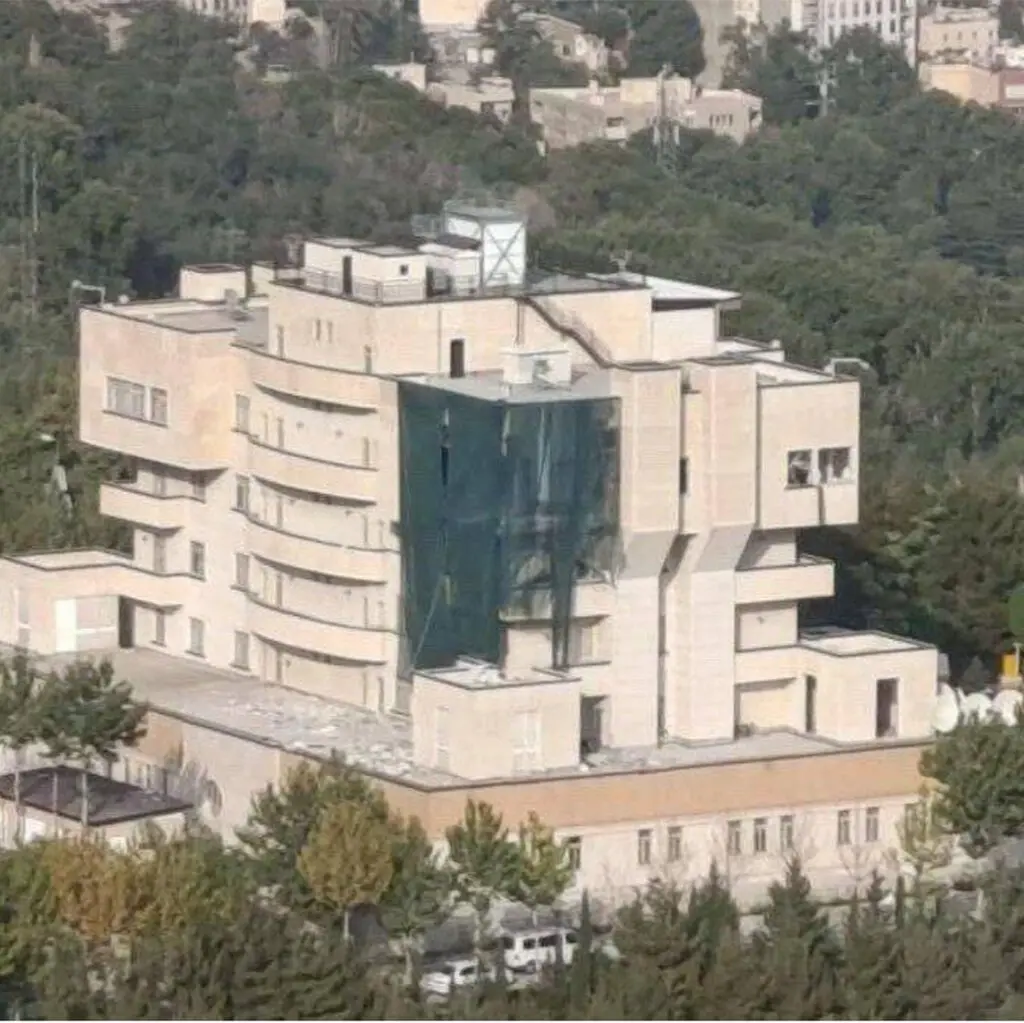
How was Hamas leader assassinated?
Haniyeh was killed by a bomb planted in his room at a Tehran guesthouse, where he was staying during a visit for Iran’s presidential inauguration.
Behind the scenes: The New York Times, citing seven Middle Eastern officials, including two Iranians and an American official, said the bomb was hidden approximately two months ago in the guesthouse in Tehran.
- The bomb, enriched by artificial intelligence, was detonated remotely by Mossad operatives who were on Iranian soil after receiving intelligence that Haniyeh was indeed in the room.
- The assassination method – planting a bomb months in advance – demonstrates a high level of sophistication and planning, raising alarms about the infiltration capabilities of foreign intelligence agencies like Mossad.
- Israeli involvement is suspected, though Israel has not officially claimed responsibility. U.S. officials have also echoed these suspicions, indicating a coordinated operation by Israel.
What’s next: Iran’s leadership is pressured to respond decisively to this breach. The ongoing investigation is likely to uncover more layers of internal corruption and external infiltration, leading to further arrests and possible military actions against Israel.
What did Iran do to upgrade security protocols?
- Senior officials’ security details have been reassessed, with changes made to their protection teams and electronic devices.
- The guesthouse compound where Haniyeh was staying has been thoroughly searched. All staff have been detained for questioning, and electronic devices have been confiscated.
- Security agencies are combing through surveillance footage from Tehran’s international and domestic airports, scrutinizing months of recordings to trace the movements of potential suspects.
- Iranian authorities believe members of the Mossad team responsible for the assassination may still be in the country, prompting an intense manhunt.
Iran wants revenge, world takes measures
- Ayatollah Ali Khamenei, Iran’s supreme leader, has ordered immediate retaliatory actions against Israel, framing the assassination as an attack on Iran’s sovereignty.
- Iranian officials have promised “severe revenge,” echoing the sentiments expressed after previous high-profile assassinations by Israeli forces.
- The Revolutionary Guards have released statements emphasizing their commitment to uncovering the full extent of the plot and holding those responsible accountable.
- Iranian TV interrupted its normal broadcasts to play military anthems, “In coming hours, the world will witness extraordinary scenes and very important developments,” the announcer said at one point on Iran’s Channel 3.
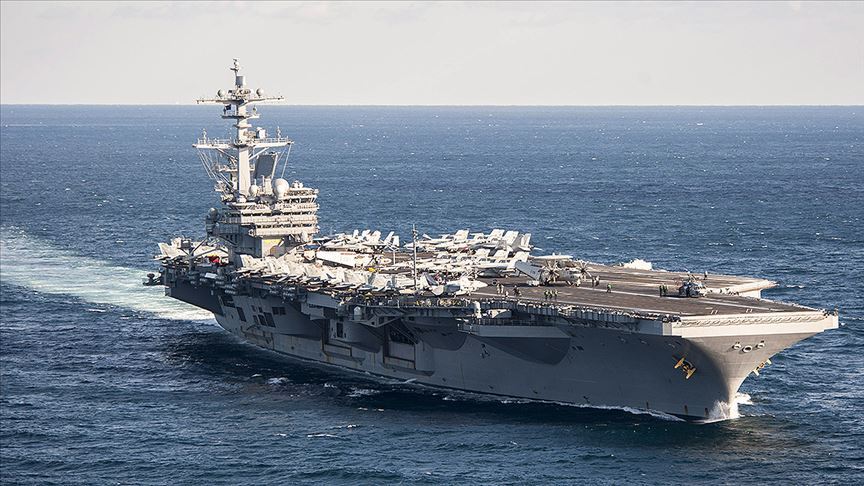
Israel’s call for help
- Israeli Defense Minister Yoav Gallant met with his visiting British counterpart John Healey on Friday and called for an international coalition to support “Israel’s defense against Iran and its proxies.”
- Following Iranian threats, the U.S. deployed the USS Theodore Roosevelt aircraft carrier to the Strait of Hormuz from the Persian Gulf to protect Israel.
- Deputy Pentagon Press Secretary Sabrina Sing announced additional measures to support Israel’s defense, including changes in current and future defense force posture.
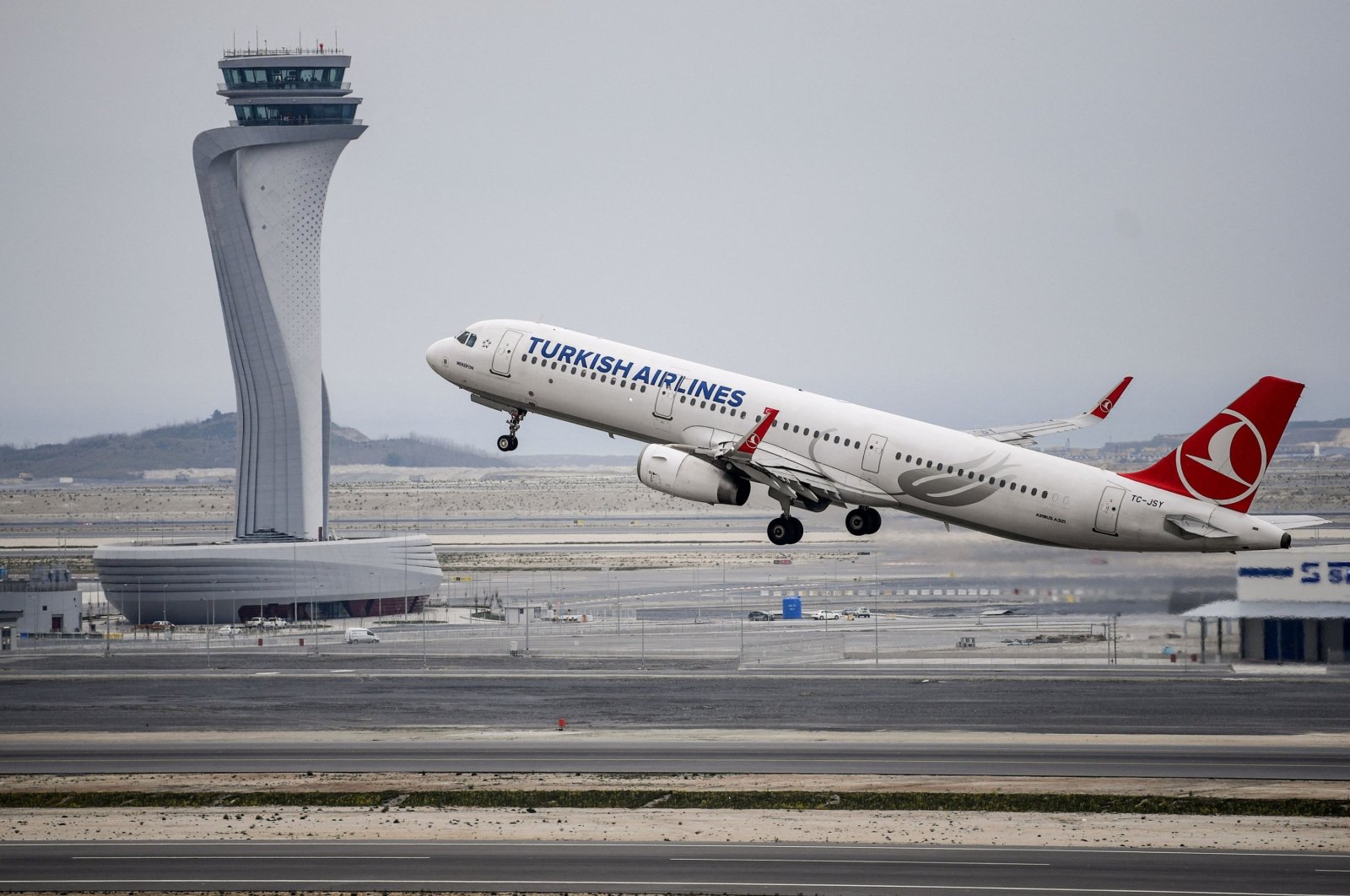
Flights cancelled
The assassination has drawn international attention, with many countries expressing concern over the escalating tensions between Iran and Israel.
- Turkish Airlines has canceled its flights to Iran, Iraq and Jordan.
- Greek airlines company Aegean has suspended flights to Tel Aviv and Beirut.
- German airline Lufthansa has suspended flights to Beirut and Tel Aviv for security reasons. The airline said in a statement that it will not fly to Tel Aviv until Aug. 8.
- The Dutch airline KLM has canceled all flights to and from Tel Aviv, Israel’s capital, until Oct. 26.
The bottom line: This assassination is not just a failure of intelligence and security, but a humiliating blow to Iran’s reputation.
The incident underscores the vulnerability of even the most protected figures in Iran and may lead to significant shifts in both domestic and foreign policies.
Iran’s response will be closely watched by both its allies and adversaries, as the country grapples with the implications of this unprecedented security lapse.
